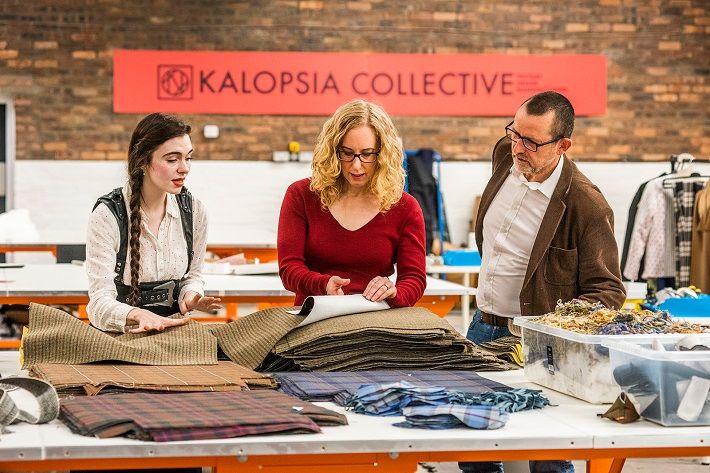
Textiles have an extremely high environmental impact – with Zero Waste Scotland’s latest Carbon Metric report showing textiles, which make up just 4 per cent of waste by weight, account for nearly a third (32 per cent) of the carbon impact of Scotland’s household waste.
Potential business models include those that reduce demand for new textiles, such as clothing and textile rental, reuse, and repair services; employ sustainable manufacturing processes; reduce in-life environmental impacts, such as mitigating the pollution from washing textiles and making them easier to reuse and repair; and maximise the amount of textile waste that is captured and recycled, Zero Waste Scotland said in a media release.
Iain Gulland, chief executive of Zero Waste Scotland, said: “As a nation, we need to rethink the way we make, buy and use products and take action to consume more responsibly. Businesses have a key role to play in facilitating that shift, helping customers make more sustainable purchasing decisions while also contributing to a greener economy. With textiles responsible for such a significant chunk of the carbon footprint of Scotland’s household waste it’s vital that we move away from a throwaway approach to products and materials and make things last instead. The Circular Textiles Fund is a fantastic opportunity for businesses to be part of the solution.”
This announcement comes shortly after the Scottish Government launched two public consultations on proposals for a Circular Economy Bill and Route Map to 2025. The consultations form part of strategic plans to deliver Scotland’s zero waste and circular economy ambitions.
Lorna Slater, circular economy minister, said: “Every material that is wasted comes at a cost to our planet, but it’s clear that textiles are having a disproportionate environmental impact. From fashion to furniture, there are huge opportunities for businesses with creative ideas to help address that problem. That's why we are creating the £2 million Circular Textiles Fund, which will help businesses in Scotland turn their proposals into reality. Alongside our Circular Economy Bill, this will help grow the number of sustainable businesses in Scotland and help prevent textiles from ending up in landfill or incineration.”
Rebekah Chapman, production technician at Kalopsia Collective, said: “The circular economy is a big deal for Kalopsia and we have worked hard to minimise every aspect of our environmental impact. For us it’s a passion, and it’s one we know is shared by many working in the Scottish textiles sector. We’re delighted to help launch the Circular Textiles Fund and look forward to seeing more businesses doing things differently for the future of people and planet.”
Applications to the fund can be from individual businesses or represent a collaboration between businesses.
Fibre2Fashion News Desk (KD)